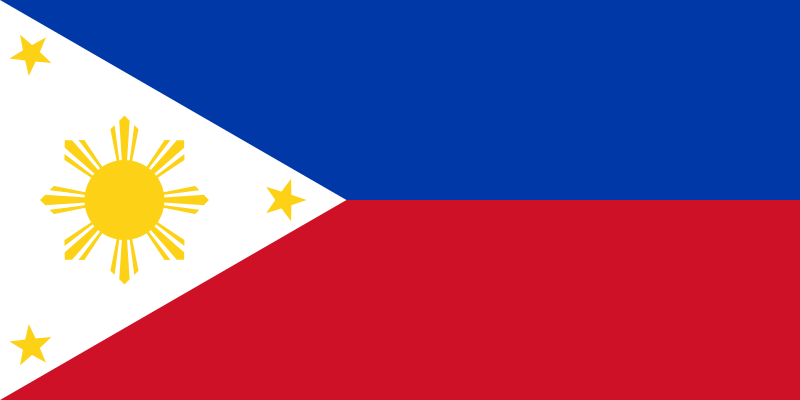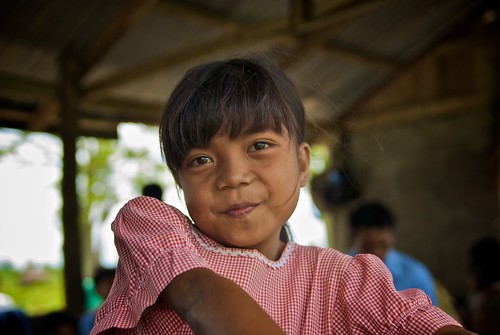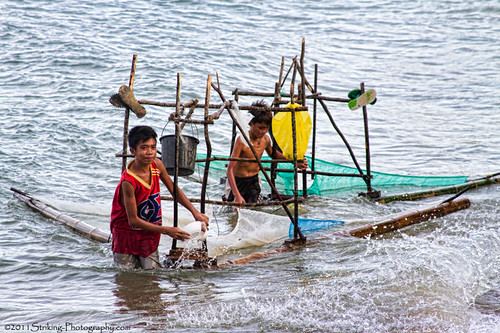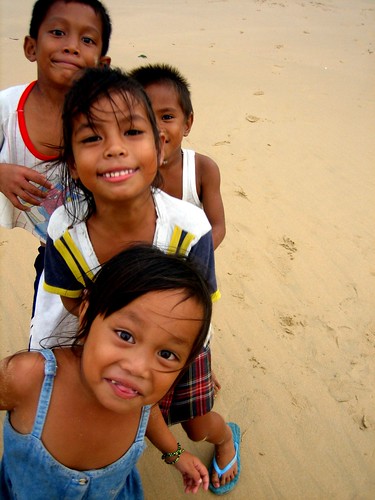Adopting from Philippines
Contents
Philippines Adoption Alert
Notice: Typhoon Haiyan – Message for U.S. prospective adoptive parents (November 18, 2013)
The Department of State wishes to inform U.S. citizens that intercountry adoption processes are functioning in the Philippines at this time. Any U.S. citizen interested in initiating an adoption from the Philippines should contact a U.S. Hague-accredited adoption service provider (ASP) that has also been authorized by the Philippine Central Adoption Authority, the Intercountry Adoption Board, in order to seek information about the intercountry adoption process. The Department of State maintains a list of all currently accredited U.S. ASPs and the Philippine Intercountry Adoption Board maintains a list of those U.S. Hague accredited ASPs that it has authorized.
Prospective adoptive parents that have already been matched with a child by the Philippine Intercountry Adoption Board should work with their U.S. Hague-accredited ASP and with the Intercountry Adoption Board in order to seek any updates on the welfare of children. The Intercountry Adoption Board and Philippine Department of Social Development and Welfare are working to confirm the welfare and whereabouts of children residing in orphanages in the affected areas. The Intercountry Adoption Board has also indicated that prospective adoptive parents awaiting a matching proposal should not be affected by the typhoon recovery efforts.
The U.S. Embassy in Manila is continuing to process Convention adoption immigrant visa appointments at this time.
Notice: ICAB Announces Temporary Moratorium (January 31, 2011)
The Philippine Inter-Country Adoption Board (ICAB) has announced a moratorium on accepting new applications from Adoption Service Providers (ASPs) who submitted more than 10 adoption cases per year for the last three years. This moratorium is designed to allow ICAB to focus its efforts on applications already filed and "enable ICAB to address the protracted waiting period for child placement." ICAB has indicated that the moratorium will be lifted once it has determined that it has been able to meet the needs of at least 50 percent of those currently waiting for a child. We will post more information on the effective end date of the moratorium as soon as it becomes available to us.
This moratorium does not apply to the following cases:
- 1. applications to be matched with special needs children;
- 2. intra-familial adoptions;
- 3. applications submitted by families who received their approval for suitability to adopt prior to January 31, 2011; and
- 4. applications submitted by ASPs that have not reached the cap of 10 adoption cases per year for the last three years. ICAB has provided the names of three U.S. ASPs affected by this suspension to the Department of State, and the Department has notified those ASPs. Please contact your ASP directly to understand whether your case is affected by the moratorium.
If you have any questions about this announcement, please do not hesitate to contact the Office of Children's Issues by phone at 1-888-407-4747 or e-mail at adoptionUSCA@state.gov. You may also find further information on ICAB's website.
Hague Convention Information
The Philippines is party to the Hague Convention on Protection of Children and Co-operation in Respect of Intercountry Adoption (Hague Adoption Convention). Therefore all adoptions between the Philippines and the United States must meet the requirements of the Convention and U.S. law implementing the Convention.
NOTE: Special transition provisions apply to adoptions initiated before April 1, 2008.
As of May 1, 2009 The Inter-Country Adoption Board (ICAB) has announced a moratorium on accepting new applications from prospective adoptive parents seeking to adopt a child between of 0-2 years of age with or without medical/developmental concerns. "Due to the large number of unmatched approved adoption applications for prospective adoptive parents wanting to adopt children" in this age group and the limited number of children currently available for inter-country adoption, ICAB has indicated that the moratorium will be lifted after it has processed at least 50% of these current cases. For further information please visit ICAB'swebsite.
Who Can Adopt
Adoption between the United States and the Philippines is governed by the Hague Adoption Convention. Therefore to adopt from the Philippines, you must first be found eligible to adopt by the U.S. Government. The U.S. Government agency responsible for making this determination is the Department of Homeland Security, U.S. Citizenship and Immigration Services (USCIS). Learn more.
In addition to these U.S. requirements for prospective adoptive parents, the Philippines also has the following requirements for adoptive parents:
Residency
U.S. citizens interested in completing a full and final adoption of a Filipino child while they are living in the Philippines must be residents of the Philippines for at least three years prior to the filing of the adoption petition, and maintain such residence until the adoption is finalized. U.S. citizens living in the Philippines do not need to possess a certificate of legal capacity to adopt. However, prospective adoptive parents must obtain a letter from the U.S. Embassy's American Citizens Services section stating that they do not issue certificates of legal capacity. Prospective adoptive parents who meet these residency requirements should file a petition for adoption with the Philippine Court to begin the adoption process and submit the letter from the American Citizen Services in lieu of certificates of legal capacity.
The Philippine Government may waive these requirements if the prospective adoptive parent (or parents) is a former Filipino citizen who seeks to adopt a relative within the fourth degree of consanguinity as defined by Philippine law, or the prospective adoptive parent is a person who seeks to adopt the legitimate child of his/her Filipino spouse.
Please see the below information provided in " Visa categories under the Hague Convention Adoption" which explains the difference between completing a full and final adoption in the Philippines and obtaining custody for the purpose of adoption in the United States.
Age of Adopting Parents
Based on the Inter-Country Adoption Law of the Philippines (Republic Act No. 8043), the adoptive parent must be at least 27 years of age and at least 16 years older than the child to be adopted at the time of application, unless the adopter/adoptive parent is the biological parent of the child to be adopted or the spouse of such parent. The maximum age gap between the adoptive parent and the child to be adopted must not exceed 45 years.
Marriage
If prospective adoptive parents are married, they must file jointly for adoption.
Income
There are no minimum income requirements set by the Philippines. Prospective Adoptive Parents must however prove financial stability.
Other
Prospective adoptive parents must not have ever been convicted of a crime involving moral turpitude. Parents must be in a position to provide proper care and support and to give necessary moral values to all his/her children, including the child to be adopted. Prospective adoptive parents must agree to uphold the basic rights of the child as embodied under the Philippine laws and the U.N. Convention on the Rights of the Child.
NOTE: Since May 1, 2009, the Inter-Country Adoption Board (ICAB) in the Philippines has set a moratorium on accepting new applicants wanting to adopt children within the age range of 0-2 years old with or without medical/developmental concerns. For more information, please visit the website of ICAB: http://www.icab.gov.ph/.
Visa categories under the Hague Convention Adoption
- 1. The IH3 visa classification is appropriate for a Convention adoptee who was the subject of a full, final, and legal adoption abroad by the petitioner (and spouse, if married) and who will reside in the United States with the Prospective Adoptive Parents. For IH3 visa cases in the Philippines, there should be a certificate of finality of the adoption decree issued by the court. Upon residing in the United States with the citizen parent, after having been lawfully admitted into the United States for permanent residence, and assuming the IH3 visa classification was appropriate and the Convention adoptee is under the age of 18, the child will automatically acquire U.S. citizenship as of the date of admission to the United States.
- 2. The IH4 visa classification is appropriate for a Convention adoptee who will be adopted by the petitioner (and spouse, if applicable) after being admitted to the United States (requires both petitioner intent to adopt and satisfaction of any applicable pre-adoption requirements of the home state). The petitioning U,S. citizen parent must have legal custody of the Convention adoptee and authorization for the emigration and final adoption of the child. For IH 4 visa cases in the Philippines, the ICAB issues a Placement Authority. It is a document that grants custody of the adoptee to the prospective adoptive parent or parents. Convention adoptees entering on an IH4 visa become Legal Permanent Residents upon admission to the United States, but do not automatically acquire U.S. citizenship. A Convention adoptee who enters the United States on an IH4 visa acquires U.S. citizenship as of the date of a full and final adoption decree in the United States as long as the child is under age 18 at the time of adoption and is residing in the United States in the physical and legal custody of the U.S. citizen parent or parents.
Who Can Be Adopted
How to Adopt
Adoption Authority
The Process
Traveling Abroad
Applying for Your U.S. Passport
A valid U.S. passport is required to enter and leave Philippines. Only the U.S. Department of State has the authority to grant, issue, or verify U.S. passports. Getting or renewing a passport is easy. The Passport Application Wizard will help you determine which passport form you need, help you to complete the form online, estimate your payment, and generate the form for you to print-all in one place.
Obtaining Your Visa
In addition to a U.S. passport, you also need to obtain a visa. A visa is an official document issued by a foreign country that formally allows you to visit. Where required, visas are attached to your passport and allow you to enter a foreign nation. To find information about obtaining a visa for Philippines, see the Department of State's Country Specific Information.
Staying Safe on Your Trip
Before you travel, it's always a good practice to investigate the local conditions, laws, political landscape, and culture of the country. The State Department is a good place to start. The Department of State provides Country Specific Information for every country of the world about various issues, including the health conditions, crime, unusual currency or entry requirements, and any areas of instability.
Staying in Touch on Your Trip
When traveling during the adoption process, we encourage you to register your trip with the Department of State. Travel registration makes it possible to contact you if necessary. Whether there's a family emergency in the United States, or a crisis in Philippines, registration assists the U.S. Embassy or Consulate in reaching you. Registration is free and can be done online.
After Adoption
What resources are available to assist families after the adoption?
Many adoptive parents find it important to find support after the adoption. Take advantage of all the resources available to your family -- whether it's another adoptive family, a support group, an advocacy organization, or your religious or community services.
Here are some good places to start your support group search:
Child Welfare Information Gateway
North American Council on Adoptable Children
Adoption Services Support Group for Adopting Persons
SOURCE
Intercountry Adoption, Bureau of Consular Affairs. U.S. Department of State Country Information










